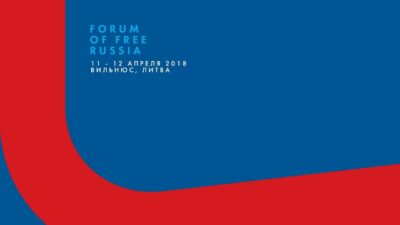In June 2010, Vladimir Putin’s spies broke into the Guardian’s Moscow office. This was a regular thing. Whenever I wrote a story that displeased the…

In June 2010, Vladimir Putin’s spies broke into the Guardian’s Moscow office. This was a regular thing. Whenever I wrote a story that displeased the Kremlin, the FSB spy agency paid a nocturnal visit. On this occasion, the goons removed the office phone from its cradle and laid it demonstratively on the table. Apparently, they didn’t like my coverage of big news from America.
That week, the FBI had exposed a ring of deep-cover Russian sleeper agents. The undercover spies had been living in Boston, New York and Washington, in leafy suburban homes. Their task was to ferret out information from US officials and thinktanks. The agents had fake American names. Some had been there for decades, sent at the end of the cold war on a lonely mission, like satellites blasted into space.
Since 2000, the FBI had been secretly watching the group. The bureau had a mole: a disillusioned Russian foreign intelligence officer, Alexander Poteyev. Poteyev gave the CIA details of Moscow’s “illegals”, working under non-diplomatic cover. Some were husband and wife. Their children grew up in the US and Canada, speaking English and knowing nothing of their parents’ real nationalities or furtive occupation.
The BBC’s security editor, Gordon Corera, has written a lively and engrossing account of the FBI’s decade-long counterintelligence operation against the illegals, Russians Among Us. He talked to special agents whose job it was to watch them 24/7. The FBI placed bugs and broke into their homes. It monitored secret communications with Moscow, marital rows, even lovemaking.
Russia’s foreign intelligence agency, the SVR, ran its agents along classic cold war lines, it turned out. From time to time, a courier codenamed Christopher Metsos flew to the US to meet individual members of his secret team. Money to fund their activities was hidden next to a semi-buried beer bottle. On another occasion, Metsos picked up cash from a Russian official, swapping bags in the New York subway.
The FBI made interesting discoveries about how the illegals spoke to Moscow. The oldest tapped out coded radio messages. The youngest, the glamorous Anna Chapman, used a laptop to access a private wireless network, while meeting a handler in a Manhattan coffee bar. There was also steganography: encrypted text files magically hidden among innocent-looking photos of colourful flowers.
This tradecraft was certainly ingenious, but what exactly did the spies achieve? None of them succeeded in learning US secrets. The FBI was able to warn off potential targets. Corera takes the view that the illegals were a genuine threat, on a par with the Cambridge spies who devastated British intelligence. The 21st-century Russians could have recruited a new generation of American double agents, he thinks.
The counter-view is that the illegals were a throwback to a bygone era, by a regime that chucked Marxism-Leninism but kept the old KGB playbook. A prestigious SVR programme costing $50m ended in failure and embarrassment. The Kremlin was clearly furious. The 2010 break-in at the Guardian’s office happened after I poked fun at the “amateurish and bungling” behaviour of Moscow’s ghost spies abroad, who used the identities of dead children.
Corera draws a link between the extraordinary events of that summer and Putin’s subsequent revenge. The Obama administration decided to swap the illegals for four jailed Russians who had allegedly spied for the west. The exchange took place on the tarmac of Vienna airport. Watching from the Russian side was Alexander Zhomov, a veteran spymaster whom Corera likens to Karla, John le Carré’s fictional KGB super-chief.
One of those traded by Moscow was an ex-officer from GRU military intelligence, Sergei Skripal. Skripal had spied for MI6. In 2018 the GRU sent two assassins to his home in Salisbury, where he lived under his own name. There, they poisoned him and his daughter, Yulia, in an operation redolent of the 2006 teapot murder of another Russian-born MI6 asset, Alexander Litvinenko.
Corera correctly notes that the US and UK were slow to appreciate Russia’s malign intent once Putin became president. In the 00s, MI6 stopped monitoring the SVR’s London office, he reports. By 2005, at least 30 career spies were based at the Russian embassy in Kensington. Typically, the Russians would elude MI5 surveillance. “It was our C team against their A team,” one British counter-espionage official tells him.
Russians Among Us offers a persuasive account of how Moscow had adapted its espionage toolkit in the wake of the 2010 fiasco. Increasingly, the Kremlin uses a range of intermediaries to influence and subvert western politics. Some are oligarchs. Others are “co-optees” – Russians without formal spy training. There are also “cyber” illegals who, in 2016, remotely impersonated Americans on Facebook during the US presidential election.
Did Moscow seek to influence the outcome of the EU referendum vote, in the same way it backed Donald Trump’s long-shot campaign for the White House? Corera swerves around this question, alas. Theresa May and Boris Johnson say there was no “successful” interference, but refuse to define what that means. Corera doesn’t examine recent donations by wealthy Russian emigres to Tory coffers.
Overall, this is a compelling book that combines good storytelling with a subtle understanding of spy methods old and new. Corera notes that the government hasn’t taken meaningful action against Russian money, even after the gruesome Skripal hit. Wealthy Russians can buy mansions as before and float their companies on the London stock exchange.
With Johnson and “global Britain”, Russia’s blurred espionage war is set to continue.
Luke Harding is the author of Shadow State: Murder, Mayhem and Russia’s Remaking of the West to be published in May by Guardian Faber.




